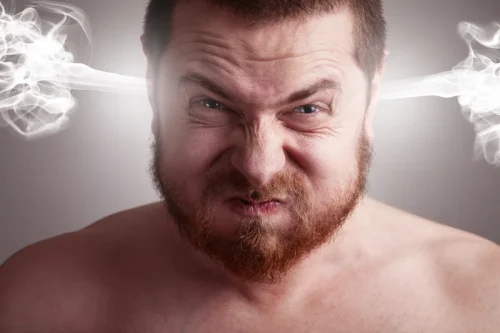03 авг Alcohol Withdrawal: Symptoms, Treatment & Timeline

Individuals should be prepared to be uncomfortable during this period and have medical help available if needed. This is the period in which delirium tremens is most likely to occur, which requires immediate medical attention. There is no exact timeline for alcohol withdrawal, and individual factors, such as the level of dependence on alcohol, will influence it. Over time, however, the body builds a tolerance to alcohol, and a person may have to drink more and more to get the same feeling. Meanwhile, the brain is producing more and more neurotransmitters, making a person further imbalanced.
Is Alcohol Dependence the Same as Alcoholism?
By Rachael Zimlich, BSN, RNZimlich is a critical care nurse who has been writing about withdrawal seizures symptoms health care and clinical developments for over 10 years. This is what causes the signs of alcohol intoxication, such as sedation (calmness, relaxation, sleepiness) and disinhibition. Chronic alcohol use leads to neuroadaptive changes in the brain when the body tries to restore the balance in neurotransmitters. Emphasizing a balanced diet and proper hydration can maintain brain health and mitigate seizure triggers. The ketogenic diet, while primarily studied in pediatric cases, shows potential benefits for adults.
What causes alcohol withdrawal seizures?
In a 2018 study in which 204 people with epilepsy reported consuming alcohol in the last 12 months, researchers found that seizure worsening related to alcohol consumption was reported in 18.1% of these people. People who chronically consume large amounts of alcohol seem to be more likely to have epilepsy than people who don’t. Alcohol acts by stimulating receptors in your brain that cause brain activity to be suppressed.
The Role of Therapy and Counseling
Generalized tonic–clonic seizures (rum fits) are the most dramatic and dangerous component of the alcohol withdrawal syndrome. The brain substrates that trigger these seizures are largely in the brainstem and, therefore, are distinct from those believed to be responsible for other clinically important seizure types. Moreover, because alcohol withdrawal seizures are pharmacologically induced, the pathophysiologic mechanisms almost certainly are different from those of the seizures that occur in genetic and acquired epilepsies. This review provides an overview of the current understanding of the cellular and molecular events that lead to alcohol withdrawal seizures. Alcohol-induced seizures are triggered by alcohol withdrawal in people with a long history of drinking. Alcohol withdrawal seizures can occur a few hours to a few days after a person stops drinking after chronic alcohol abuse.

Alcohol Withdrawal Seizures
An estimated 50 percent of people who have an alcohol addiction will experience withdrawal symptoms if they abruptly stop drinking. Of those people, 3 to 5 percent will experience AWD symptoms like grand mal seizures and severe confusion. Many dependent drinkers can stop drinking without experiencing severe withdrawal. However, intercurrent illness (trauma, fever, hypoxia) can contribute to severe withdrawal.

For many, choosing to take that first step to seeking treatment can https://ecosoberhouse.com/ be scary, but you’re not alone. Medications such as clonazepam and lorazepam are benzodiazepines that can cause a life threatening interaction when mixed with alcohol. Alcohol and some antiseizure medications can have similar side effects, and taking them together can cause potentially dangerous complications. Consuming alcohol in large quantities for extended periods seems to increase seizure frequency and might increase your risk of SUDEP. According to the Epilepsy Society, consuming alcohol may make your epileptic medications less effective and may make the side effects of your medications worse.
- There are some specific considerations that may affect your risk of seizures when using alcohol.
- Detox alone may help you achieve sobriety, but that sobriety may be short-lived.
- The observation that some patients have ingested alcohol within an hour of a first seizure has led some investigators to postulate that ethanol intoxication can lower seizure threshold.
- While receiving treatment, healthcare providers will want to monitor you continuously to make sure you don’t develop life-threatening complications.
- Some people describe a general “funny feeling” that happens in this phase.
Dr. Rufus Tony Spann is a nationally certified school psychologist, licensed professional counselor, yoga teacher and reiki master. Over the years, he has served as a department chair, adjunct professor, assistant professor, speaker and trainer. Dr. Spann owns private practice You in Mind Psychotherapy and Consultation, which focuses on providing culturally responsive therapy, and he assists many therapists of color in receiving their independent licenses.

American Addiction Centers (AAC), the parent company for Alcohol.org, is a nationwide provider of treatment providers and works to ensure recovery is accessible to everyone in need. We offer a combination of proven therapies and services to meet your individual needs. We are also equipped to treat co-occurring disorders such as depression, anxiety disorders, PTSD and others.
- Over time, however, the body builds a tolerance to alcohol, and a person may have to drink more and more to get the same feeling.
- If you or a loved one are ready to begin the journey toward a substance-free life, we’re standing by to take your call.
- Whether over a long or short period, drinking alcohol in large quantities can cause your body to react when you stop drinking or reduce the amount you drink.
- When you drink, the alcohol suppresses certain neurotransmitters in your brain.
Alcohol is a depressant that calms the nervous system by affecting glutamate and gamma-aminobutyric acid (GABA). Both of these neurotransmitters play a role in managing brain activity and relaxation. After graduating from residential treatment, program participants generally transition to outpatient treatment.


No Comments